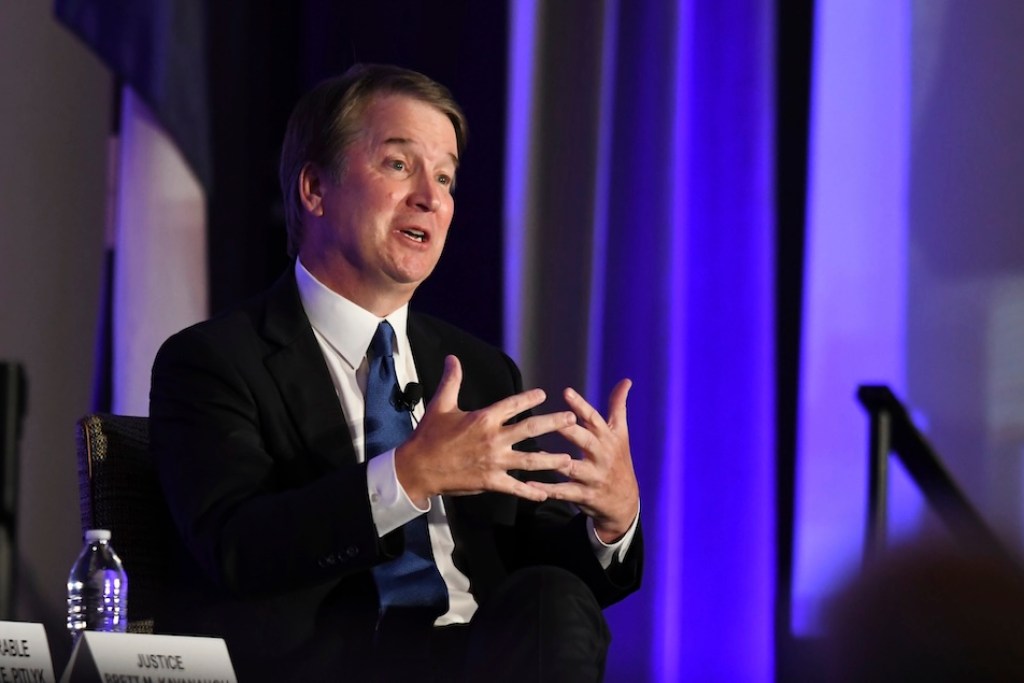


Justice Brett Kavanaugh warned judges Monday that the role of the judiciary in immigration legal disputes is not to set policy, sending the Supreme Court‘s latest warning to lower courts via its emergency docket.
Kavanaugh’s comments came in a concurrence of a 6-3 order lifting restrictions that a federal district court in California placed on federal authorities’ ability to conduct immigration operations in the Los Angeles area. The justice told lower-court judges that their role is only to ensure immigration policies and procedures are lawful and constitutional, rather than to weigh in with their own preferred policies.
Recommended Stories
- Supreme Court lifts district court's LA immigration raid restrictions
- Supreme Court allows Trump to fire FTC commissioner while considering case
- Federal judges lash out over Supreme Court justices' emergency orders
“Especially in an immigration case like this one, it is also important to stress the proper role of the Judiciary,” Kavanaugh wrote. “The Judiciary does not set immigration policy or decide enforcement priorities. It should come as no surprise that some Administrations may be more laissez-faire in enforcing immigration law, and other Administrations more strict.
“Article III judges may have views on which policy approach is better or fairer. But judges are not appointed to make those policy calls. We merely ensure, in justiciable cases, that the Executive Branch acts within the confines of the Constitution and federal statutes.”
Kavanaugh pointed to the high court as an example of staying within its “constitutionally assigned role” in a pair of rulings: in 2023’s United States v. Texas and 2022’s Biden v. Texas, both during the Biden administration, which deferred immigration policy to the executive branch rather than allowing for courts to decide.
“Just as this Court a few years ago declined to step outside our constitutionally assigned role to improperly compel greater Executive Branch enforcement of the immigration laws … we now likewise must decline to step outside our constitutionally assigned role to improperly restrict reasonable Executive Branch enforcement of the immigration laws,” Kavanaugh said.
“Consistency and neutrality are hallmarks of good judging, and in my view, we abide by those enduring judicial values in this case by granting the stay.”
Kavanaugh’s sharp message came weeks after Justice Neil Gorsuch issued a stern warning to lower-court judges to obey the high court’s rulings on the emergency docket.
“Lower court judges may sometimes disagree with this Court’s decisions, but they are never free to defy them,” Gorsuch wrote in an order late last month.
SUPREME COURT LIFTS DISTRICT COURT’S LA IMMIGRATION RAID RESTRICTIONS
The Supreme Court has had to intervene in an unusually high number of cases on its emergency docket as lower-court judges have halted Trump administration actions, including on immigration, at abnormally high rates.
The Trump administration’s aggressive immigration agenda, which has caused uproar from Democrats, has been halted at times by various Democrat-appointed judges who have tried in federal court to stop deportations. The Supreme Court has handed the administration several wins in immigration cases on the emergency docket.
